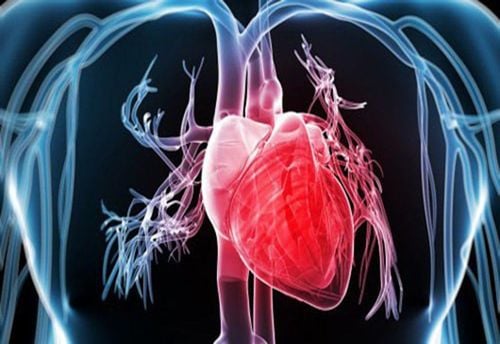This is an automatically translated article.
The article is professionally consulted by Associate Professor, Doctor, Doctor Huynh Thoai Loan - Head of Pediatrics - Neonatology - Pediatrics - Neonatology Department, Vinmec Central Park International General Hospital
Children with big calves or not is a concern of many parents, so they always want to find ways to improve the size of their calves and height. If abnormally large calves are caused by fat accumulation, this means that the child is overweight, obese, has an inappropriate diet and is sedentary. So is there any way to improve the condition of children with big calves?
1. Children with big calves are short?
Human height has long been the subject of extensive research across many scientific fields because of its ease of measurement, its relative stability in adulthood, and its fairly normal distribution. According to established evidence, adult height is determined by genetic characteristics and various environmental factors. In addition to genetic factors, which cannot be controlled, there are a multitude of environmental factors that can affect height during the period of constant growth. Therefore, the physical development of children and adolescents may decline, resulting in adult height being affected if environmental conditions are adverse. Therefore, understanding which factors affect height and focusing on will help develop children's height more quickly.
1.1.Inheritance
Genetics is the main factor that determines a person's height. More than 700 different genes have been found to determine a child's height from birth.
Some genes affect the production of growth hormone while others control different growth plates. A child with tall parents is likely to achieve ideal height naturally, while a child with short parents will have to work on other factors to be taller than average.
1.2. Sex
The height on the child's growth chart also depends on whether the child is a boy or a girl. Accordingly, boys always tend to be taller than girls. The average height difference between boys and girls is 14 cm. Besides, boys also have a longer development time than girls until adulthood.
1.3.Hormones
The body produces certain growth-stimulating hormones to create bones. Among them, human growth hormone is the most important hormone for growth. A lack of growth hormone will adversely affect an adult's potential for eventual height growth.
Certain health conditions can limit the amount of growth hormone in a child's body. In addition, some children are slower to grow than others because of a rare genetic condition called congenital growth hormone deficiency. Besides, the thyroid gland also produces hormones that affect the growth of the body. Furthermore, sex hormones such as estrogen and testosterone also play a huge role in the development of adolescents during puberty.
1.4. Nutrition
Of all the environmental factors affecting height growth, nutrition has the strongest effect. Children and adolescents without good nutrition will not be as tall as children with adequate nutrition. This is because different nutrients help the body in different ways. Therefore, parents should give priority to children to eat a balanced diet that includes all the nutrients necessary for height growth (proteins, carbohydrates, vitamins and minerals). In particular, protein and calcium are especially important for bone growth and bone health, found in milk, poultry, meat, eggs, seafood, legumes and nuts.

1.5. Practice
Exercise or sports can improve a child's height through stimulating the production of growth hormone, which directly contributes to the development of bones and muscles. Sports and exercise help in better blood circulation, thus delivering more growth hormone to all parts of the body.
Moreover, regular exercise or playing sports also helps to stretch the child's body. This facilitates better structure for the spine and legs, allowing the child to grow to a height that is genetically predicted.
1.6. Sleep
Sleep in babies is very important because it allows the body time to rest and growth hormone is released more during deep sleep than when awake.
Furthermore, while the baby is sleeping, the body is able to heal and recover from any injury, thus promoting optimal development not only in bones and muscles but also overall health and fitness .
Thus, the height growth of children is largely controlled by genes. Even so, there are environmental factors such as nutrition, exercise, and sleep that can also influence height gain during the growing years. Therefore, large calves are not a factor affecting a child's height. If the calves are abnormally large, it is due to the correlation between muscle mass - fat in the calves and femur length. When the child has a limited height for age (expressed in femur length) and weighs more than the standard weight and more than the actual height, the image of large calves will be shown. This means that children fall into overweight, obesity, inappropriate nutrition, sedentary and potentially slow growth in height. At this point, whether big calves are dwarfed becomes an easy thing to explain.

2. Big calves and how to fix it
Possessing a fit body and ideal height may or may not be genetic, but toned and healthy calves are completely achievable. In some cases, children with excess fat in the thighs and calves are a sign of being overweight. However, the goal of overcoming large calves in children is completely achievable if the following steps are followed:
Step 1 - Feed your child lots of whole grains, fruits and vegetables
Choose varieties Nutrient-rich foods such as berries, brown rice and broccoli on a plate will help satisfy hunger without causing them to gain excess fat because they are low in calories but rich in filling fiber.
Other ways to eat and drink fewer calories are to offer your child low-fat milk instead of whole milk, skipping sodas, and allowing sugary foods only for really special occasions.
Step 2 - Encourage children to participate in active hobbies
Children can't just lose weight in the calves but should be exercised to reduce body fat to slim areas of concern like big calves.
According to children's health organizations, children usually need about 60 minutes of physical activity every day to have a healthy body. However, parents can break up the activity into smaller sessions, such as 20 minutes of jogging, 20 minutes of playing soccer or jumping rope, and 20 minutes of dancing to their favorite music.
Step 3 - Encourage your child to take a physical strength training course
Being physically active will increase the number of calories the body burns daily, which means it will help them lose weight faster. Accordingly, classes specifically for children to increase muscle strength such as swimming, jogging, soccer, martial arts... should be facilitated for children to participate.
Step 4 - Do Exercises That Target Calves
Squats are an example of leg exercises that focus on making calves and thighs stronger. You can start by standing with your feet slightly apart from your hips, placing your hands at your sides, and turning your toes slightly outward. Slowly crouch down as if sitting in a back seat and stop. Stand up and repeat 10 to 15 more times in each set. In addition, encouraging children to ride bicycles for close distances around the neighborhood, going to school is also an effective way to improve big calves.
In short, as a parent, you always want the best for your child. An ideal height is no exception. Tall and strong children have always been considered the embodiment of good health. Parents should also stop worrying about abnormally large calves in children because this feature does not affect the child's height at all. Instead, focusing on other factors such as nutrition, exercise and sleep quality will help children quickly have outstanding height.
If the application of measures on the child's height cannot be improved, parents should take the child to specialized medical facilities of Endocrinology - Pediatrics for examination and treatment support when necessary. .
Currently, at Vinmec International General Hospital, there is a team of Endocrinologists - Pediatricians with many years of experience in examination and treatment who will give the best advice and treatment regimen, ensuring health. comprehensive for baby.
Please dial HOTLINE for more information or register for an appointment HERE. Download MyVinmec app to make appointments faster and to manage your bookings easily.
Note: This article is part of the Vinmec International General Hospital System's Awareness Program on Growth Retardation, with the support of Novo Nordisk













